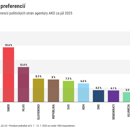I've written this article and you're reading it. So we are members of the same club. We're both literate - we can read and write. And we both probably feel that literacy is essential to our lives. But millions of people all over the world are illiterate. Even in industrialised western countries, such as the UK and the USA, approximately 20% of the population have 'low literacy levels'. But what exactly does that mean?
My parents both left school at 14. They could read and write, but except for a quick look at the daily newspaper, reading and writing didn't play a big part in their lives. There were very few books in the house. My mother was amazed because the woman who lived next door always wrote a list of what she needed before she went to the supermarket. Why couldn't she remember? We laughed about that for weeks. Our family didn't write lists! And when I was only 14 years old my father gave me an important letter that he'd written to the bank and asked me to check it for grammar and spelling mistakes. And there were quite a lot. He never usually wrote letters or postcards or even Christmas cards. So when he had to write he wasn't comfortable or confident. Does that mean that my father had a 'low level of literacy'? I don't think so.
What is illiteracy?
There are lots of different definitions of literacy. Some experts define it as having the reading and writing skills that you need to be independent in your everyday life. So, for example, if you can read instructions, write a cheque, fill in a form, - anything that you need to do in everyday life - then you are 'functionally literate'.
Other people say that you are illiterate if you think that you are illiterate. In other words, if you feel that you can't read or write as well as you would like to.
If you live in a society where most people are literate then you will feel ashamed or embarrassed and avoid situations in which you have to read or write. The father of a friend of mine finally admitted to his family that he couldn't read when he was 45 years old. He bought the newspaper every day and pretended to read it - and believe it or not, his family had no idea.
Literacy in the past
We often forget that writing is a recent invention. Many years ago, the word 'literate' meant being able to communicate well in speaking, in other words what we now call 'articulate'. Story telling was an important activity in the past and still is today in some societies. Reading was often a co-operative activity - someone would read aloud to a group, often from a religious text such as the Koran or the Bible.
Only a hundred years ago, in the United States, you were considered to be literate if you could sign your name to a piece of paper. It was an important skill. You were not allowed to vote if you couldn't sign the voting register, so literacy was connected with political rights, and many people were excluded from the democratic process.
Nowadays we see reading and writing as being connected, but that wasn't so in the past. Many people could read, but not write. Writing was a skilled profession. If you needed something written then you paid an expert to write it for you. And of course, rich and important people have always employed people to write things for them. Important company bosses dictated letters to their secretaries or personal assistants. And now with new computer software you can dictate directly to your computer.
Is literacy important?
Being illiterate can have a big effect on people's lives. For example, a study in the UK showed that people who write and spell badly are seen as careless, immature and unreliable, and often unintelligent. So it is more difficult for them to find jobs, even when reading and writing are not necessary for the work.
World-wide statistics show that literacy problems are associated with poverty and a lack of political power. More women than men are illiterate. Illiterate people have worse health, bigger families and are more likely to go to prison. So literacy campaigns must be a good thing. But don't forget that an illiterate person, or someone with a low level of literacy, isn't necessarily stupid or ignorant - and may not be unhappy at all. Knowledge and wisdom isn't only found in writing.
Vocabulary
5 words/phrases from the text:
- confident: feeling certain that you can do things
- aloud: speaking so that other people can hear
- careless: not paying attention to what you are doing
- unreliable: that people can't depend on
- wisdom: the experience and knowledge to make good decisions
Exercise one.
Vocabulary gap fill. Now use the 5 words/phrases to fill the gaps in the sentences below:
- His actions weren't taken without a lot of thought. They showed ........................
- I am often afraid to speak ......................in front of a group of people
- He says he will do something and then he doesn't. He's very .......................
- You've made quite a few .....................mistakes. Try to be more careful in future!
- She seems to be a very .................... young woman. I think she will go far in her career.
Exercise two.
Comprehension: reordering sentences. Put the sentences below in the order they appear in the article.
a. Companies in Britain are often reluctant to employ people with poor handwriting
b. In the past literacy was more identified with having good speaking skills
c. Literacy can mean not being dependent on other people in order to read and write things
d. People with low levels of literacy are not necessarily more unhappy than the rest of the population
e. The ability to read did not always imply an ability to write
Grammar.
Modals - deduction (present)
We use modal verbs to say how sure we are about something.
1 must
We use must when we feel sure that something is true because there's very strong evidence.
He must live near here because he comes to work on foot. We don't know where he lives but we're sure it's not far away.
Come inside and get warm - you must be freezing out there.
You're a zookeeper? That must be very interesting.
Notice that must is followed by an infinitive without ‘to'.
2 might, may, could
We use might, may or could to say that we think something is possible but we're not sure.
Did you hear that? I think there might be a burglar downstairs. She's not sure there's a burglar but she thinks it's possible.
We'll try to get there early but we may arrive late if there's a lot of traffic.
Don't put it up there. It could fall off and hit someone.
Might, may and could are also followed by an infinitive without ‘to'.
3 can't
We use can't when we feel sure something is not true.
It can't be a burglar. All the doors and windows are locked. He doesn't know it's not a burglar but he feels sure it's not.
It can't be far away now. We've been driving for hours. Where's the map?
Really? He has to work on Christmas Day? He can't feel very happy about that.
Like the other verbs, can't is followed by an infinitive without ‘to'.
Remember that all of these modal verbs - must, might, may, could and can't have other uses. These are covered in another section.
Exercise
Complete the sentences using must, might, may, could or can't.
1 It [1] be him - he's in Spain this week. He [2] have a twin brother, I suppose.
2 Come in and sit down. You [3] be tired after the journey.
3 Who's this letter from? It [4] be from Paul - he never writes letters.
4 The exam results should be out soon. It [5] be this week or it [6] be next week.
5 She always gets such good grades at school. She [7] work very hard.
Quiz Question 16
This fuel powered the Industrial Revolution.
Illiteracy - key
Vocabulary
- wisdom
- aloud
- unreliable
- careless
- confident
Comprehension
- c
- b
- e
- a
- d
Grammar
- can't
- might/may/could
- must
- can't
- might/may/could
- might/may/could
- must





































